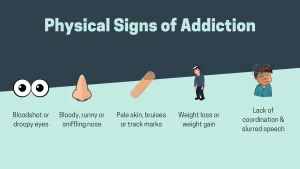Understanding Addiction
Addiction is a complex condition characterized by compulsive drug or substance use despite harmful consequences. It’s essential to recognize that addiction isn’t solely about drugs or alcohol; it can manifest in various forms, including gambling, food, or even technology. Understanding the nature of addiction is the first step toward overcoming it. Explore More About Health Issues And Their Solutions (Hemorrhoid Relief)
Recognizing the Signs
Addiction often begins with recreational use or as a means of coping with stress or emotional issues. Over time, it can spiral out of control, leading to dependency and adverse effects on physical, mental, and social well-being. Common signs of addiction include:
- Increased Tolerance: Needing more of the substance to achieve the same effect.
- Withdrawal Symptoms: Experiencing physical or emotional discomfort when attempting to stop.
- Neglecting Responsibilities: Prioritizing substance use over work, school, or relationships.
- Loss of Control: Inability to cut back or control substance use despite efforts to do so.

Action Steps to Overcome Addiction
Breaking free from addiction is a challenging journey that requires dedication, support, and perseverance. Here are five actionable steps to help individuals overcome addiction and reclaim their lives:
1. Seek Professional Help
Acknowledging the problem and seeking professional assistance is the first and most crucial step toward recovery. Whether through therapy, counseling, or rehabilitation programs, trained professionals can provide personalized treatment plans tailored to address the root causes of addiction and develop coping strategies for long-term sobriety.
2. Build a Support Network
Recovery doesn’t happen in isolation. Surrounding yourself with a supportive network of family, friends, or support groups can significantly impact your journey toward sobriety. Connecting with others who have experienced similar struggles can provide empathy, understanding, and encouragement during challenging times.

3. Develop Healthy Coping Mechanisms
Finding healthier ways to cope with stress, anxiety, or emotional triggers is essential for maintaining sobriety. Engage in activities that promote relaxation, such as exercise, meditation, or creative outlets. Learning to identify and manage triggers effectively can prevent relapse and foster emotional resilience.
4. Establish Structure and Routine
Creating structure and routine in daily life can help individuals stay focused and disciplined on their path to recovery. Set specific goals, prioritize tasks, and establish healthy habits to replace old patterns of behavior. Consistency and accountability are key elements in building a stable foundation for long-term sobriety.
5. Celebrate Milestones and Progress
Recovery is a journey marked by milestones and achievements, no matter how small they may seem. Celebrate each success along the way, whether it’s a day of sobriety, completing a treatment program, or reaching personal goals. Recognizing progress reinforces motivation and reminds individuals of their strength and resilience.
Traditional vs. Holistic Approaches to Addiction Recovery
| Traditional Approach | Holistic Approach | |
|---|---|---|
| Treatment Focus | Symptom Management | Addressing Root Causes |
| Therapeutic Methods | Medication, Behavioral Therapy | Counseling, Alternative Therapies, Mindfulness |
| Support System | Medical Professionals, Support Groups | Family, Friends, Community Involvement |
| Long-Term Outlook | Relapse Prevention, Maintenance Programs | Lifestyle Changes, Emotional Healing |
| Emphasis on Wellness | Limited | Comprehensive |
Conclusion
Overcoming addiction is not an easy feat, but with dedication, support, and the right strategies, it is possible to break free from its grasp and live a fulfilling, sober life. By seeking professional help, building a strong support network, developing healthy coping mechanisms, establishing structure and routine, and celebrating milestones, individuals can take actionable steps toward recovery and reclaim control over their lives. Remember, recovery is a journey, and every step forward is a triumph worth celebrating.










